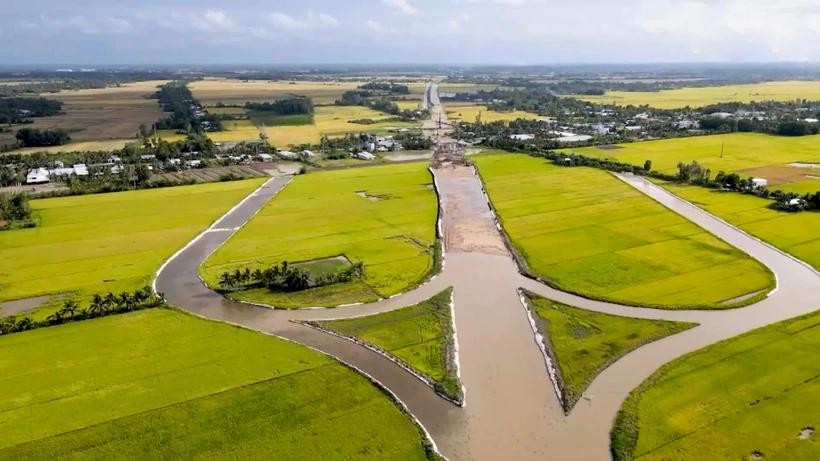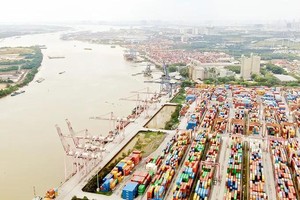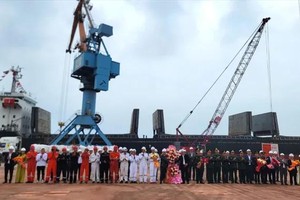
The third Annual Economic Report of the Mekong Delta in 2023 recently published by the Vietnam Federation of Commerce and Industry has identified bottlenecks in the institution, governance and linkage that are hindering the region's development in the present and in the long-term.
As per the report, there needs to be breakthrough action to reform institutions and governance and strengthen substantive and effective intra-regional and inter-regional links. It is also a choice of direction to escape the three downward spirals including the spiral of budget, the spiral of labor and the spiral of biased regional economic structure.
In particular, the budget spiral is the lack of adequate investment by the State, leading to weakness in transport, urban and logistics infrastructure. In a labor spiral with a lack of local jobs, most young people get unemployed leading to a serious decline in both quantity and quality of labor.
The spiral of economic structure creates a bias in implementing the food security mission, the gap between this region and other regions in the country is getting farther and farther. In 1990, the Mekong Delta's GRDP contributed 27 percent to the country, by the early 2000s it was about 16 percent, but by 2022, only 12 percent.
The business and investment environment has declined, and the attractiveness of the Mekong Delta has decreased. The Provincial Competitiveness Index (PCI) is always higher than the national average but is now decreasing. The PCI in 2022 is lower than the national average.
The third Annual Economic Report of the Mekong Delta in 2023 recommends removing the bottlenecks of the Mekong Delta starting from institutions, governance and regional connectivity, focusing on five following reforms.
Firstly, according to the report, the Land Law should be amended freeing up resources from land in a way that should not divide too many types of land. Applications of rigid rules create barriers and reduce transaction costs when converting land use purposes. Moreover, transaction fees should be reduced for reallocating and effectively managing land to create investment capital.
Secondly, the report proposed new thinking on food security and a strong transformation from agricultural production to a mufti-value agricultural economy.
Thirdly, the government should perfect the water resources governance mechanism as well as concretize the approach that considers water resources as the core while establishing a roadmap for applying market mechanisms, in which water specifically needs to be recognized as a commodity with economic value.
Fourth, the report suggested that regional governance and coordination institutions should be perfected.
Accordingly, the regional council or an official regional coordination organization ensures real power, a clear budget and a creative financial mechanism to invest in regional development, and an information system, a regional database to serve policy and investment decision-making, with assignments, accountability, prioritized areas and specific implementation roadmaps, and a permanent apparatus capable of monitoring and evaluate, update, adapt and motivate stakeholders to implement.
Finally, public-private cooperation and micro-linkages should be strengthened. Joint initiatives to improve the business environment are encouraged while competitiveness, improving industry clusters, designing appropriate credit products, using fair enforcement mechanisms, and building regional brand strategies should be enhanced.
Institutions for regional cooperation, governance and connectivity are not only necessary and important for the Mekong Delta but are also a breakthrough to remove regional development bottlenecks. This will pave the way for local governments to perform their tasks well, for businesses to invest and do business smoothly, and for resources to be used most effectively. Strongly improving regional cooperation institutions is an important foundation for the Mekong Delta’s sustainable development in the coming time.
























